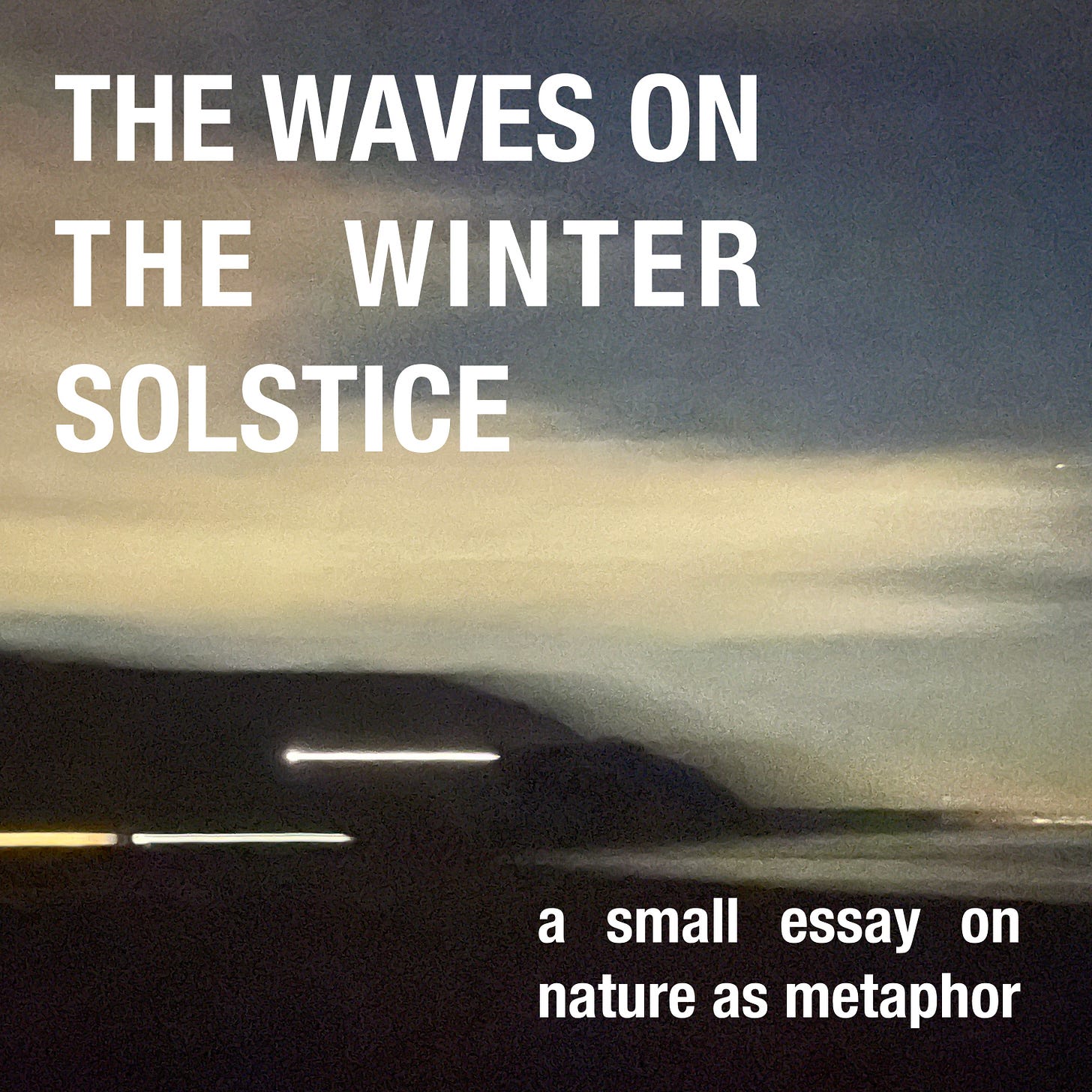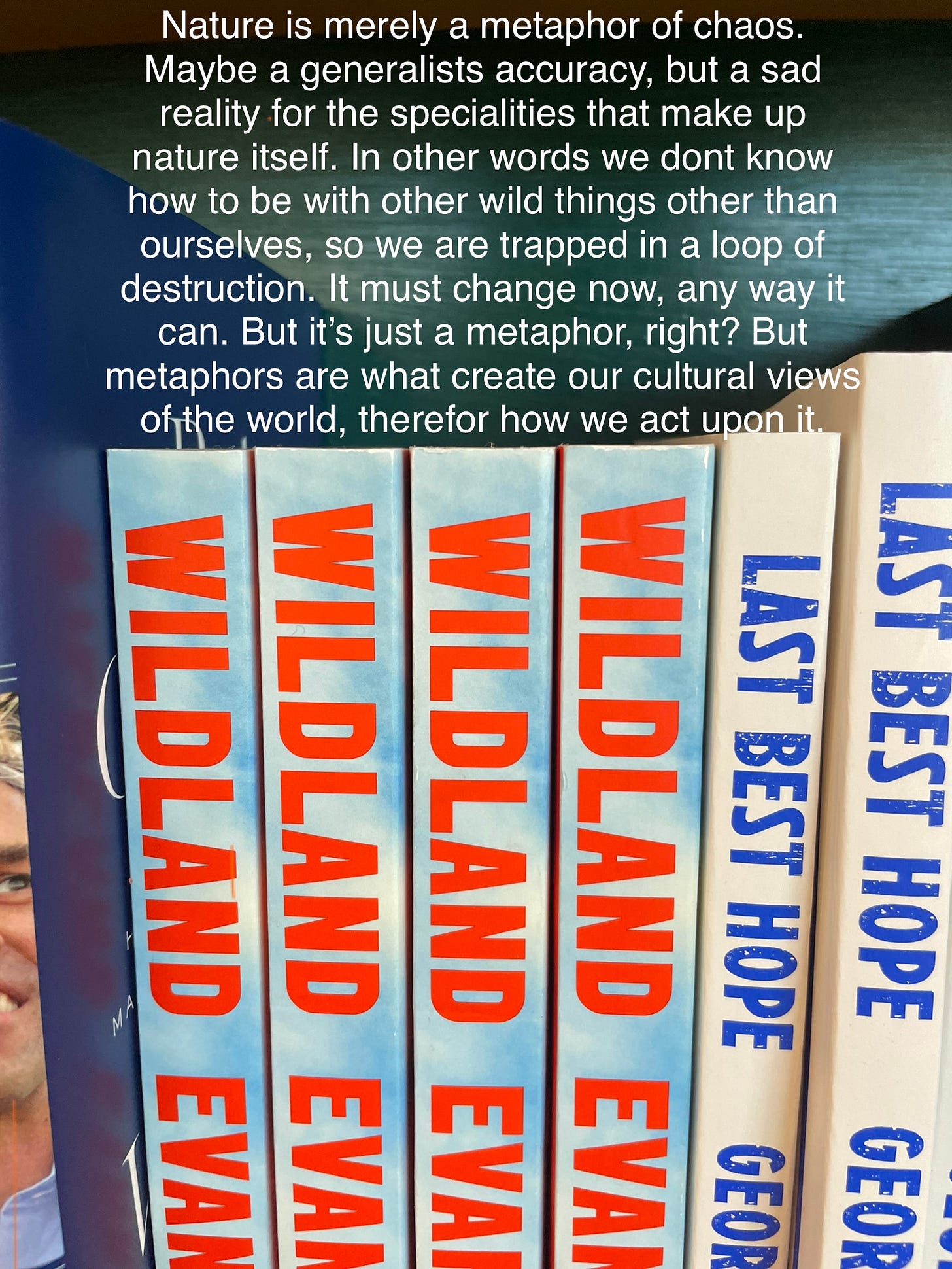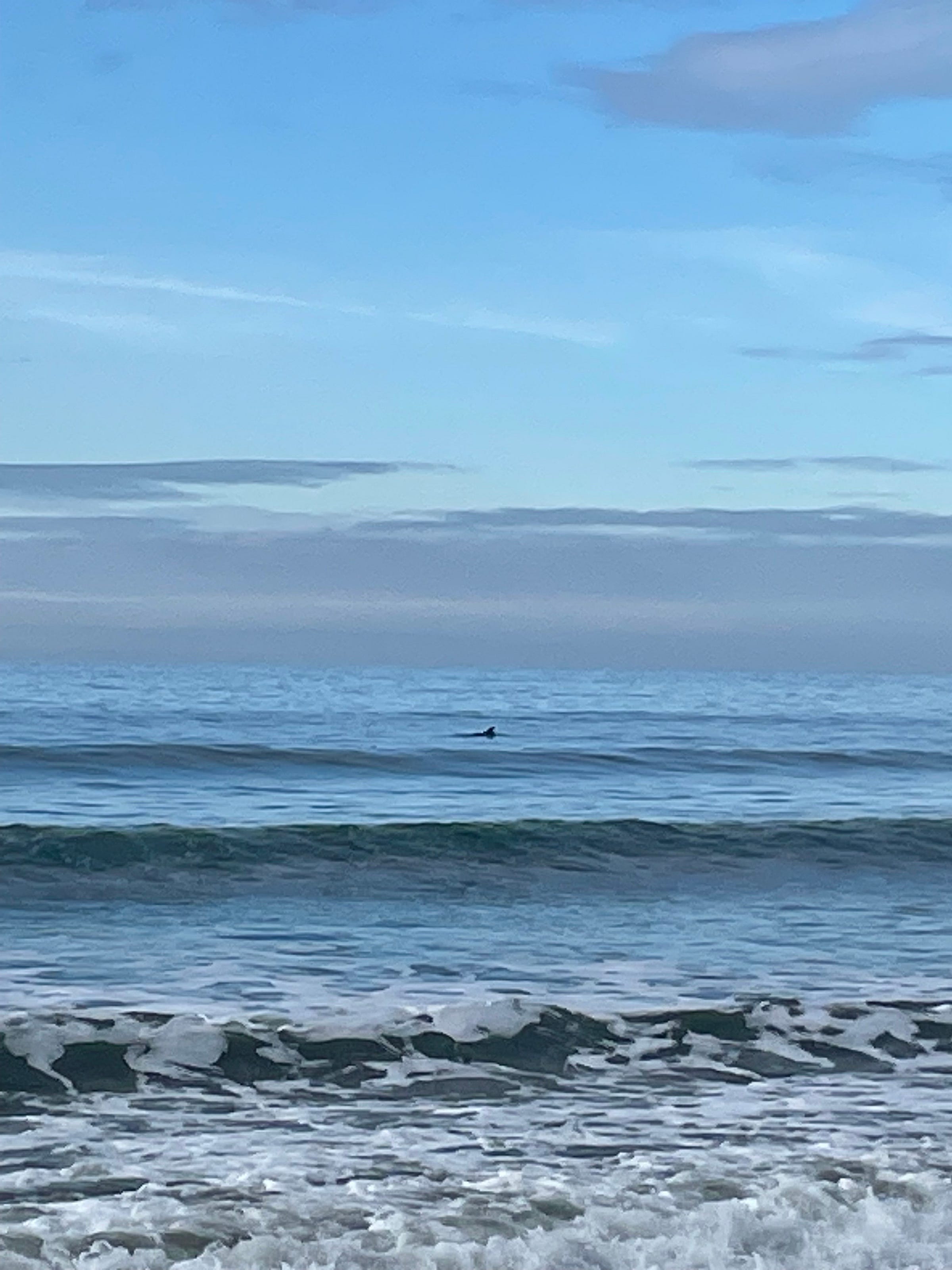This morning I went out into the ocean. Two harbor seals came and swam between me and my father. There was no wind. The surf apps said there would be six mile an hour winds. Not a sound was muffled across the water. Just the waves.
///
Virginia Woolf wrote a novel called The Waves. In it, the characters go about their lives, remembering times with their close and now lost friend. They go about their lives into old age, not quite addressing this friend’s death, but it is there, a little shadow behind each word, a ripple that dictated the future, their demeanor maybe, but most surely their sense of loss.
To be honest, the way I think of waves now, completely literally, I am unsure what it is she meant. Maybe it was the ripple that affected their life, or maybe it is that life itself sort of waves on and on, each event preceding and enforcing the next, the way waves breaking on a sandbar sift the curling grains of rock. But I don’t see waves like that anymore, as some metaphor. At least not completely. I don’t see much of what we call nature as a metaphor. Waves are just waves, just as trees are living things. Waves are just things that happen in the water, that give me a profound joy I cannot describe to anyone who hasn’t surfed, because I’ll likely sound as though I’m speaking a new language—because I’ll sound like a surfer.
///
Once I left the water and left the beach I went to a bookstore to go shopping for Christmas presents. I found some good books, a lot I wanted for myself but couldn't afford. In the politics and social issues section of this staple of Bay Area bookshops, I found a book titled Wildland. Immediately I was excited—a book about nature and the politics, maybe of conservation, in a pop bookstore. But when I looked at that cover, it was just another book about how America is divided and how we got here. Just another piece of fodder, another piece of the din of terror that we are becoming polarized because the publishing industry is not convinced that enough of us already know this. A title of such a beautiful place, a place unfit for cultivation, used as a metaphor of terror.
///
I wrote on a picture I took of the book: “Nature is merely a metaphor of chaos. Maybe a generalist's accuracy, but a sad reality for the specialities that make up nature itself. In other words we don’t know how to be with other wild things other than ourselves, so we are trapped in a loop of destruction. It must change now, any way it can. But it’s just a metaphor, right? But metaphors are what create our cultural views of the world, therefore how we act upon the world.”
This isn’t to say I don’t like metaphors, but this seems all we see nature as good for—a tool to get a point across in writing, or a thing to be monetized. By nature I usually mean literally everything, but right now I mean anything that is not human.
But maybe I’m overthinking it all. Maybe it’s not just a metaphor, and I just saw a book title I thought of as uninspired. After all, wildland is a flimsy word itself. I just wish we took more care when it comes to how we talk about these things.
///
When I got out of the water this morning, I walked down to the rocks on the east end of the beach with my step-mom and a friend. We saw a school of dolphins. An old man patrolling the beach warned us that we were crossing an invisible border onto a federal beach and could get a ticket for having our dogs there. We thanked him. He walked quickly ahead of us, turned around, and yelled that there were orcas in the water. They were too small to be orcas, but I don’t know what they were either. We turned around and went back to the house on the beach.






